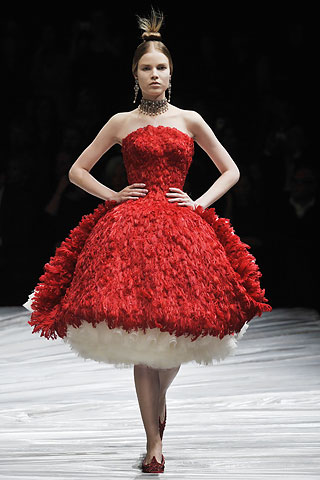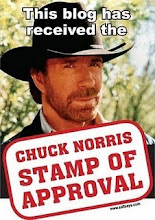 I've developed a problem with rubber. I've just purchased a pair of skin-tight rubber stockings, designed to be held up with a garder and worn cute under a skirt (or naughty under fetish gear) just like the standard pair of silk stockings would allow. Here's the problem. I live in a small mountain town in the American Southwest. A town of no more than 60,000 people where those standard silk stockings aren't even worn.
I've developed a problem with rubber. I've just purchased a pair of skin-tight rubber stockings, designed to be held up with a garder and worn cute under a skirt (or naughty under fetish gear) just like the standard pair of silk stockings would allow. Here's the problem. I live in a small mountain town in the American Southwest. A town of no more than 60,000 people where those standard silk stockings aren't even worn.But the trouble doesn't stop there. I wore out last night, for the first time, my new Margielas. Those luscious black thigh high, open-toe high-heel leather boots from Margiela's Spring/Summer '08 line. Not having had ample time to work the boots into a steady relationship with the other items in my closet (I like to imagine my various fashion pieces falling in love, developing relationships, and even occasionally falling into unfortunately co-dependent habits in which they simply *need* each other to work.), I darned a quick pairing of the Margielas to my Fall '08 Pleasure Principle poncho. The coupling worked, even if simply, and off we went to first scrabble at the local live-bluegrass-playing brewery, and then billards at the just-around-the-corner-from-there billiards bar. You see the conflict? I'll likely end up wearing the above rubber leggings in a similar context--out for a wild night on the town at the local cowboy bar, or dancing it up to the country-bluegrass band that drove up mountain for the weekend.
I spent time this winter thinking about how we understand the meaning of any particular situation or action. We tend to talk as though if we just garner what a person intends to do, then we'll know what they meant to do, and so then we'll know how to interpret a situation. This kind of thinking plays out in various scenarios in another way too. Like, how when some celebrity or public figure is "caught" doing something we want to get them in trouble for, and they respond by saying that what ever we're accusing them of isn't what they meant, as if that should be enough to get them off the hook. A wealth of examples, unfortunately, can be found with someone like Miley Cyrus (I can't believe I'm going to spend time here talking about her) who in her youthful folly just wants to have fun (like when shooting goofy photos of herself with friends). But, it turns out Miley Cyrus' life plays out on a huge multi-national stage. So, what she *meant* to do with her friends as goofy fun, now has a really different meaning in a close-to global context. What was just fun *for her* is now offensive for people that weren't there when the just-goofing-around actually happened.
Miley Cyrus, unfortunately, brings up an interesting example of how we determine what an action or incident *means.* It's reasonable to think that what a person intends is part of it. Our own American legal system certainly agrees. A chunk of the difference between murder and manslaughter is what the person meant to do--was it pre-planned, or was it an accident? I certainly hope, however, that goofy photos, or rubber leggings aren't quite as dramatic as that. But the analogy can still be made to the trouble I've started this post with. Intention isn't enough. The context an event occurs within, and then the contexts it may further get seen through also impact how we understand what "really" happened.
In the privacy of her own home Miley can intend to just take goofy pictures for the purposes of her own entertainment. In that limited context her intent might have a heavier bearing on how we interpret what she is doing--she's just having goofy fun. But when those goofy photos get released onto a global stage, the limited context of her living room (or whereever) becomes less relevant, it would seem, and now the complexity of the larger world context becomes more weighty on the interpretation. Miley got hugely chastised by a plethora of Asian American groups for her not taking heavy enough consideration of her own position as a role model for young people in choosing how she behaves. The concern was that what Miley claims were just goofy photos, appear from the outside to be making fun of Asians by making a stereotypical slant-eyed image of her own face. Miley and her friends took pictures of themselves pulling their eyelids sideways, and then those pictures got published on the internet. Initially, after getting "caught" in the act, Miley barely apologized, instead telling people via her blog, that they should just lighten up, cause all she meant to do was be silly. Again, she was chastized for not taking the problem seriously enough--the problem being that because she is a role model, her slanty-eyed behavior can be seen as making fun of Asian people, thus influencing millions of kids to go ahead and also make fun of Asian people. Eventually Miley did respond by saying she started to come to a better understanding of her own mistake. She said she realized that her actions could be "unintentionally hurtful." That is, her consciously understood intention wasn't enough to determine what her actions were going to mean for everyone. We could say, her mistake was not realizing her life is not confined to her own living room; what she does is going to be interpreted in a context larger than just her interactions with her goofy friends.
When it comes to clothes, it at first might seem like a less political consideration. But, how we dress influences how other people (not to mention ourselves) feel when they're around us, and so how they perceive and interact with us. So, what we're wearing turns out to already be political too. From my perspective, I just need a way to get through this absurd existence with the ability to revel a bit in that absurdity. But, how I dress gives people a way to intrepet who I am and what I intend. The challenge comes in that most of the time I get dressed for my own sake. How am I going to feel because of what I'm wearing? Some days, you just gotta wear and have possession of an item of clothing you find fascinating. That way you've got something wonderful to think about that's different from the stress of work, or family, or your finances. How could we not want to throw sparkle on our day with such a shiny surprise as those stockings? Or, those boots. Look at how different the day seems when your legs look like you've been given a quick latex dip, just like a pair of walking pliers. In relation to the poncho, the question with those boots becomes, do they go all the way up? Are they pants over sandals? No. They're fabulous. But it turns out not everyone thinks this way, of course. And so how such excellence is interpreted depends not only on my own interest in jazzing up my life by jazzing up the surface quality of my legs, but also on how they couple with where I wear them. I'll still focus on how what I'm wearing is going to match up with the way I want to feel that day. And, I've got to accept that fashion worn in a small American Southwestern mountain town means taking the risk of a life askew of context. But sometimes intentionally rubbing your clothes the wrong way against the clothing norms of a town built out of ranching, logging, and mountain biking is the best simple way to give your day a life full of meaning. What could be hotter, or more ironic, than the absurdity of rubber stockings and a Resistol cowboy hat?













everyone always gives me shit for this, but i've said it before and i'll say it again: this is why i think debeauvoir gives the best account of freedom, and also an account of freedom that is very compatible with foucault, and therefore not radically individualizing. when she says one's freedom depends on the freedom of others, and that one should aim towards the free movement of existence, she is really saying, 'listen: insofar as you live in a material world wherein your actions can be exercised only with respect to the tools given to you, the maximization of your possibilities can occur only when everyone else can act 'freely.'' that is to say, whatever you do opens up a new sphere of contextuality and a new set of meanings for someone else to take up.
ReplyDeleteso, that relates to everything you said about miley cyrus, but also i think to dressing. i think dressing is so important for the reasons that you offer, but also especially because, in dressing, you disclose new types of embodiment and new figurations of the body and of gender, for instance. so if i wear a dress, or if i wear skinny pants or metallic silver pants or eye makeup or if you wear a cowboy hat and pleather spats, what's happening is maybe absurd, but it's also opening up a new sphere for certain observers, and disclosing Being in a new way, so to speak. it renders discrete certain forms of possibility that are now actualized.
so, when deB says that our freedom relies on the freedom of others, i argue that she says something like, our freedom, our ability to disclose being, relies on the ability of others to disclose being, to reveal possibilities. "he can become conscious of the real requirements of his own freedom, which can will itself only be destining itself to an open future, by seeking to extend itself by means of the freedom of others." to disclose possibilities, real material possibilities, in something like dress is to extend 'freedom,' extend the material circumstances by which one can exercise freedom. so. this is i think much like foucault and butler's arguments about power as performative repetition and resistance or agency as the imperfect recitation of norms and the subversion of them (drag, of course, being butler's primary example).
SO FASHION IS IMPORTANT. GOD. it also makes things pretty and interesting, and god knows we need that.
first i must protest that there is nothing absurd about a resistol cowboy hat ever (while i am willing to admit that given particular contexts and when in contrast with latex stockings or amazing thigh-high shoeboots the meaning of the hat may change for those observing the outfit).
ReplyDeletei actually like what matt has said above, when he paraphrases deB's point about freedom depending on the freedom of others and aiming towards free movement of existence. i take wearing margiela shoeboots or latex stockings to be the sort of act matt suggests: opening the world of possibilities to, and thereby augmenting the freedom of, those who live in tiny mountain towns and have never even imagined such things did or could ever exist.
rather than the miley example, i see this as a bit of an edward scissorhands situation. some people do not realize that the world could look different and that they could shape the outward expression of their personality in many different ways until someone comes along and opens the door to new ways of seeing oneself and one's place in the world in relation to others. so i imagine the wearer of the shoeboots to be edward scissorhands, and i imagine the people of the mountain town to be the suburban residents, and i imagine the people slowly realizing that not every possible article of clothing can be found at western wear stores and mountain equipment coops.
and this is good.
I wonder if, to the extent that 'revealing possibility' invites harm (in terms of not conforming with particular localized norms and thereby accruing violence) and the risk of being removed from the world of the living, when we one bears the consequences of such harm (which could be either corporeal violence or the harm that comes from being unrecognizable - Butler), we are showing what is IMpossible. Maybe possibility is relative, just like recognizability.
ReplyDeleteMaybe your fantastic boots and rubber tights (and these had better be brought with you, mind!) show others the impossibilities wound up in their way of life and not the possibilities that exist elsewhere. I wonder which is more useful, what usefulness means, and how one would go about pursuing either end.
xxx
i think that the words 'violence' and 'harm' have become so neutral in philosophy today that they are essentially worthless. what must also be recognized, and i think butler would acknowledge this, is that the 'harms' of being unrecognized are omnipresent and essential. the risks of subversion and rearticulation are effective only if they are predicated on being executed in the realm of the unrecognizable. it makes no sense to claim of political agency or Resistance if it is in the same world as that which it resists: that's not resistance at all.
ReplyDeletenow of course that does not mean that i'm saying that resistance comes from outside the tools that enable it, of course, but that the very point of this reworking is to render something alien. if i differ from butler here, which i might, i'd suggest that she'd be undermining herself. if the world is everything that is the case, the goal is to expand the world, to expand 'freedom,' and therefore to extend recognizability, but that is of course only possible by first bringing out what is unrecognizable, and inviting 'harm.' though it's not clear to me that what results from that is actual harm, or harm that is anything worth singling out.
as derrida says, intention can no longer govern the entire scene and the entire system of utterances. my intention cannot yield a particular response from another. what matters, as nietzsche says, quote quote quote, is the doing: there is no being behind doing, acting, becoming: the doing itself is everything. there is risk involved in politics, in being, in resignifying. our vulnerability, or our constitutive incompletion, is what binds us together as human: those who pretend to be so whole as to not allow whatever seems impossible to them in have only to benefit from this revealing of possibilities (or if it reveals impossibilities to them, one might say possibilities-as-impossibilities: that is, their own death).
While we're quoting, here's one I like.
ReplyDelete[Quote] Make the following experiment: say "It's hot here" and mean "It's cold here". Can you do it? - And what are you doing as you do it? And is there only one way of doing it?" [end quote] - Wittgenstein, Philosophical Investigations, section 510.
Can one mean what one wishes?
that's an interesting question.
ReplyDeletei just had a conversation in which i was telling a story about meeting an acquaintance for a drink. i invited this acquaintance to meet with casual intentions of 'hey, i'm going to be in your 'hood, let's get a beer', but recalled after sending this invitation that it had been suggested to me by a mutual friend that i invite this person for a drink with the assumption that the motivations would be 'let's hang out because there might be the possibility for romantic involvement here'.
it occurred to me then that the meaning i intended for that beer could and would be rail-roaded by the meaning that the mutual friend intended, if the mutual friend had mentioned their scheme to my acquaintance at the same time that they mentioned it to me.
so, can we mean what we wish? i think that we can, but i think that meaning is generally open to the interpretation of others. i think that unless the meaning of something is open to dialogue (for debate and clarification) or firmly decided upon (for pragmatic purposes - i'm thinking here of language and particularly in regards to the wittgenstein quote above) meaning suffers from a multitude of independent and perhaps conflicting interpretations. that isn't to say that we can't mean particular things; only that if our meaning gets reinterpreted in ways that differ from the intended meaning we will have to be prepared to defend the intended meaning.
now, can we mean what we wish when wearing margiela shoeboots and resistol cowboy hats?
the answer to this is decidedly 'yes'.
I can't respond to much that has been said, but it's all very interesting, but the 'resistol' cowboy hats max out at 7 3/4 if that link is correct. So cowboys aren't big headed people (head size has nothing to do with smartness). It probably means cowboys are cowboys with smaller heads so they don't fall off their horses as often.
ReplyDeleteMy current uberboss is a snappy dresser and probably appalled that his very good payroll manager wears unironed flannel shirts and cuts (massacres) his own hair, trims his facial hair randomly, and let's not talk about shoes. But barring baring too much, I think that whatever one wears should first be what that person needs to wear.
Whether the clothes were forced upon them by their own closet of clothes or it is a personal statement or need, if I could wear those boots, I think in a town of 600,000 I might raise a few eyebrows, and all for the good.
God, I miss Flagstaff, and we were only there three days.